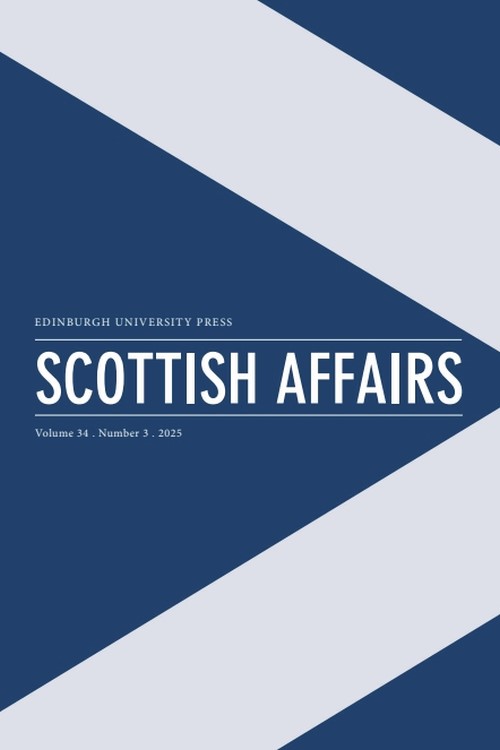
By David Clelland

David Clelland is the author of the article ‘Double Devolution? Examining the Case for Scottish ‘Metro Mayors’‘ in Scottish Affairs.
In May this year, Hull and East Yorkshire elected its first mayor, Reform UK candidate Luke Campbell. The former boxer became the latest to join a growing body of directly elected mayors for English city-regions, now an established feature of the political landscape in the UK.
The growing prominence of English regional mayors has prompted calls for similar arrangements to be adopted in Scotland. The idea also seems to have the endorsement of Scottish Labour, on the basis that mayors can ‘strengthen regional identities, deliver integrated services and unlock new economic opportunities’.
However, little of this commentary has so far seriously engaged with what a system of Scottish regional mayors might look like in practice – or with more critical perspectives on the approach to regional devolution being taken in England. So what is the case for Scottish mayors?
Why have regional mayors?
English mayors like Campbell or Andy Burnham in Greater Manchester are not ceremonial figures like Provosts, or executive leaders of local authorities. They lead regional combined authorities, covering multiple local authority areas, with varying powers and responsibilities.
One rationale for creating some form of governance at this regional scale is that many existing council areas do not match ‘real’ spaces of economic and other activity. This is particularly a problem in large city-regions, where there might be conflict or competition between different local authorities. Decision-making aligned with ‘functional economic areas’, is expected to lead to better economic performance, a key rationale for English regional devolution as part of the ‘levelling up’ agenda. However, even where English devolution deals have gone furthest, mayors’ budgets, powers and policy levers may be too limited and fragmented for effective joined-up regional strategies.
Mayors, as single, recognisable figureheads, have been justified on democratic grounds. As George Osborne put it: ‘it’s right people have a single point of accountability: someone they elect, who takes the decisions and carries the can’. The legitimacy of being directly elected might indeed give mayors the influence they need to get things done, in the absence of strong formal powers. But this also needs to be seen in the context of the UK’s centralised governance, where the terms of devolution, and access to funding, is controlled by central government – from the point of view of decision-makers in London, being able to deal with a single leader for each region is attractive.

Credit: Scottish Government via Flickr, License: CC-BY 2.0
What might a Scottish mayoral system look like?
Much of the supportive commentary in Scotland seems to assume that the adoption of regional mayors on the same basis as in England would be fairly unproblematic. However, the context is significantly different.
Firstly, the types of responsibilities being granted to English mayoral authorities – for example around transport, planning, skills and economic development – are already devolved to the Scottish Government. While there might be a case for ‘double devolution’ of some responsibilities downwards to Scottish regions, others might be more appropriately retained at the national level in Scotland compared to its larger southern neighbour. At the same time, there are already a tangle of ‘regional’ structures such as Health Boards and Regional Transport Partnerships covering different geographies which would need to be consolidated. It is also possible that regional authorities could suck functions upwards from councils, who are already under pressure to share services with their neighbours.
Secondly, Scotland has a distinct geography, most notably having few substantial urban centres compared to England. Although mayoral authorities in England have now spread beyond the biggest cities, the devolution framework suggests a minimum population of 500,000. Only the Glasgow and Edinburgh city-regions would qualify on this basis, although Aberdeen and Dundee/Perth could come close (depending on what boundaries are chosen, a thorny issue in itself). This raises the question of how rural areas might be included (or excluded) in any mayoral system. Would it make sense, for example, for the South of Scotland become a combined authority with a mayor? Could places outside the city-regions be disadvantaged if they lack comparable powers or resources to promote regional development or to influence central government? These questions are yet to receive any serious attention.
Does Scotland need mayors?
Scottish cities face the same problems of fragmented local governance as their English counterparts, with Glasgow’s boundaries in particular excluding places that are functionally part of the urban area. This has been recognised to some extent through a variety of strategic partnerships and other initiatives – such as growth deals – for city-regions and beyond. This scale of governance could be strengthened, with some kind of regional democratic structures.
Whether or not this would require directly elected regional mayors is less clear. In a complex environment, where cities are negotiating with and trying to influence both Scottish and UK Governments, and competing with Manchester, Hull and the rest, it is easy to see why the idea of each having its own Andy Burnham might be attractive. However, there is little evidence that mayors or any other specific form of governance are necessarily most effective in improving places’ performance.
In contrast, there is a strong case for cities and regions needing sufficient powers, capacities and resources to pursue effective place-based strategies, tailored to their specific circumstances. Given the long-term drift towards centralisation within Scotland, and the hollowing out of local government through fiscal austerity, it is doubtful if we could say that Scottish cities and regions currently have these powers.
While proposals to layer English-style regional mayors on top of the existing system might have some merits, this should only be one element of a more thorough, comprehensive and perhaps ambitious reassessment of what local and regional government in Scotland should look like.
Read the full article, ‘Double Devolution? Examining the Case for Scottish ‘Metro Mayors’’ in Scottish Affairs
About the Author
David Clelland is a Lecturer in Rural Regeneration in the School of Social and Environmental Sustainability at the University of Glasgow.
Explore related articles on the EUP Blog
A parcel of rogues in a nation? Twenty-five years of the Scottish Parliament
The Scottish State and the People in Early Modern Scotland
Stands Scottish Literature Where It Did? Revisiting Devolution
EUP 75: Our Publishing in Scottish Studies





